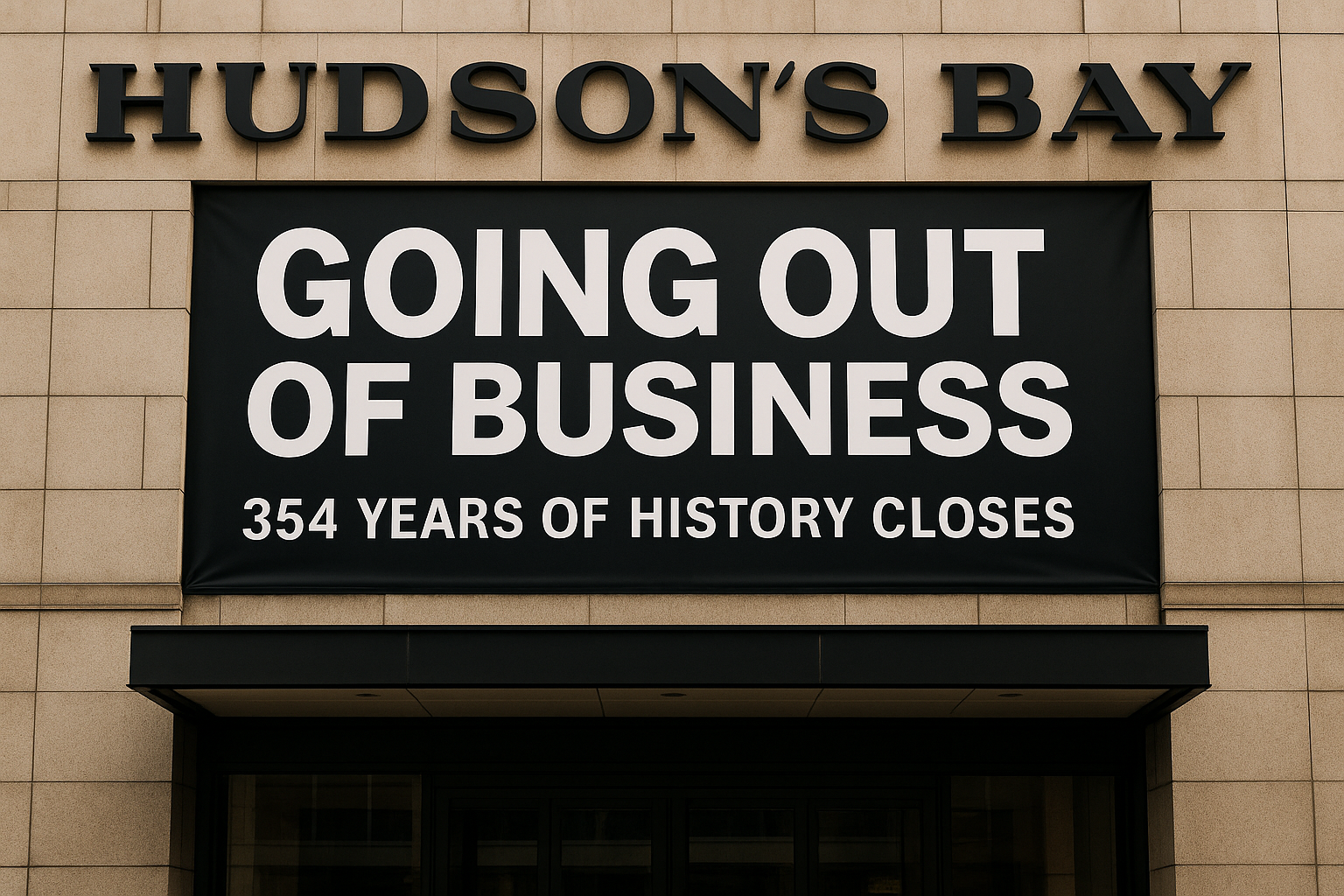On June 1, 2025, “Hudson’s Bay,” a department store beloved by Canadians for generations, will permanently close all of its locations, effectively ending its 354-year history. The news that approximately 89% of its workforce—8,347 employees—will be laid off transcends a mere business liquidation. It stands as a powerful symbol of changing times and the harsh realities of modern commerce, leaving a lasting impression on our collective memory.
The Fall of a Once “State Strategy Company”
The Hudson’s Bay Company was founded in 1670 under a royal charter from the British Crown, originally serving as a government-backed enterprise. Through the fur trade, it played a vital role in the exploration, development, and governance of North America. Later, it transitioned into a department store business, becoming a symbolic presence in Canadian life and known as the only domestically owned department store in the country.
How did it come to this point? Behind the downfall lies more than CAD 1.1 billion in debt, years of financial losses, and failed real estate strategies that obstructed any viable turnaround. Particularly devastating was the lawsuit filed by RioCan over unpaid rent on 12 store locations. The loss of credibility in store-based operations—the cornerstone of its reconstruction plan—ultimately forced the court to opt for liquidation.
The End of the Department Store Model—or a Sign of Its Evolution?
Many see this collapse as marking “the end of the traditional department store model.” E-commerce, the decline of shopping malls, and shifting consumer behavior—all these structural challenges affected the department store sector, and Hudson’s Bay was no exception. The court’s rejection of the restructuring plan as “lacking specificity” reflects the limitations of clinging to the conventional store model.
Yet, there is another perspective. The “Hudson’s Bay” trademark and intellectual property are slated to be acquired by Canadian Tire for CAD 30 million. This indicates that the brand still holds significant value. The name may endure, possibly finding new life in a different form.
History Never Truly Ends — The Lessons We Must Carry Forward
After 354 years since its founding, the closure of one of the world’s oldest companies compels us to reflect not only on “corporate failure” but also on the lifespan of enterprises, the potential for revival, and the importance of adapting to the times. Today, we must ask whether companies can take responsibility not just for performance metrics, but for the broader “ecosystem” they create—including community connections and employee livelihoods.
The liquidation of Hudson’s Bay represents one form of “how things end” in the business world, while also offering insights for the future of corporate management. We must not let the final chapter of this historic institution go to waste.

